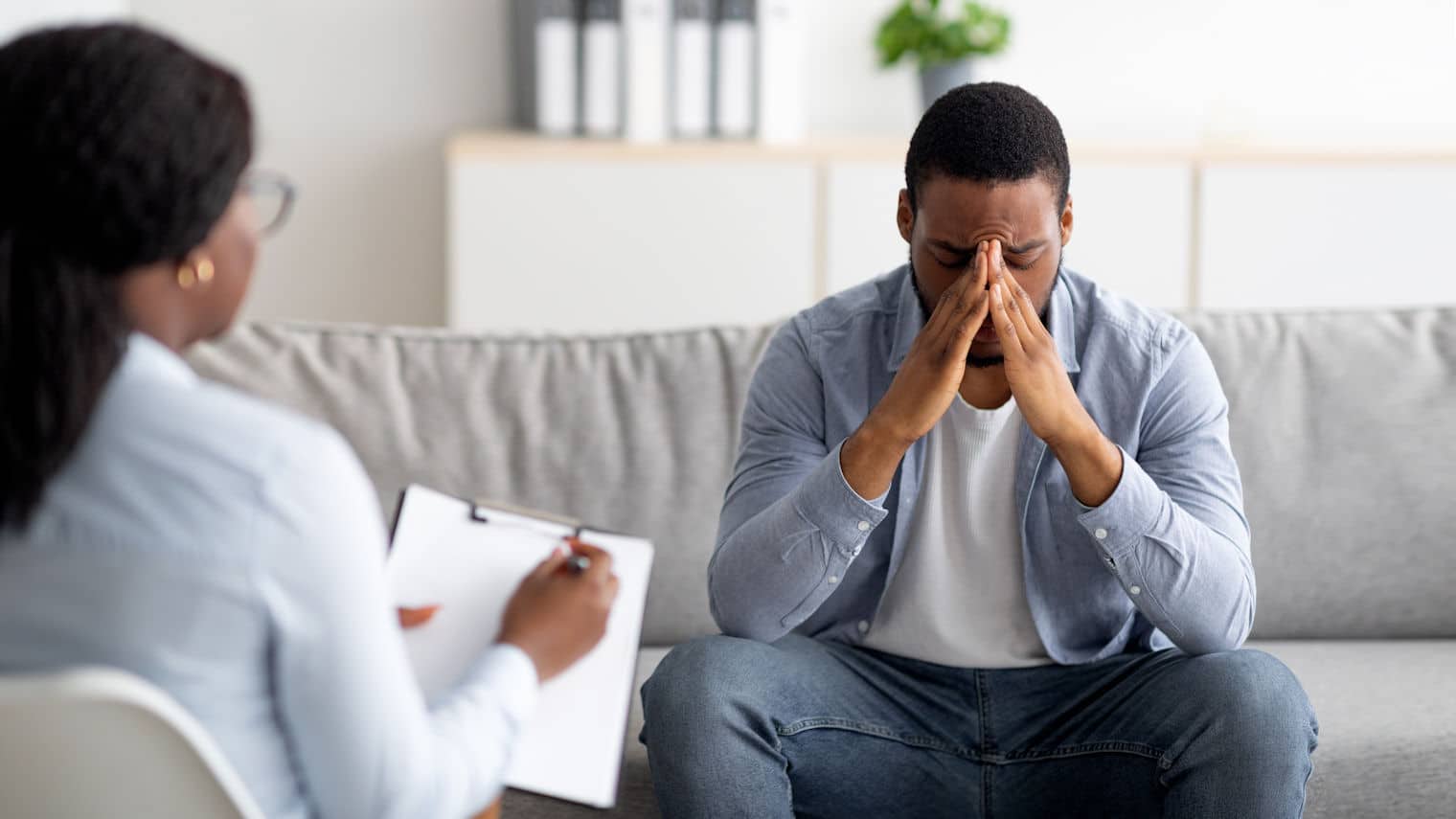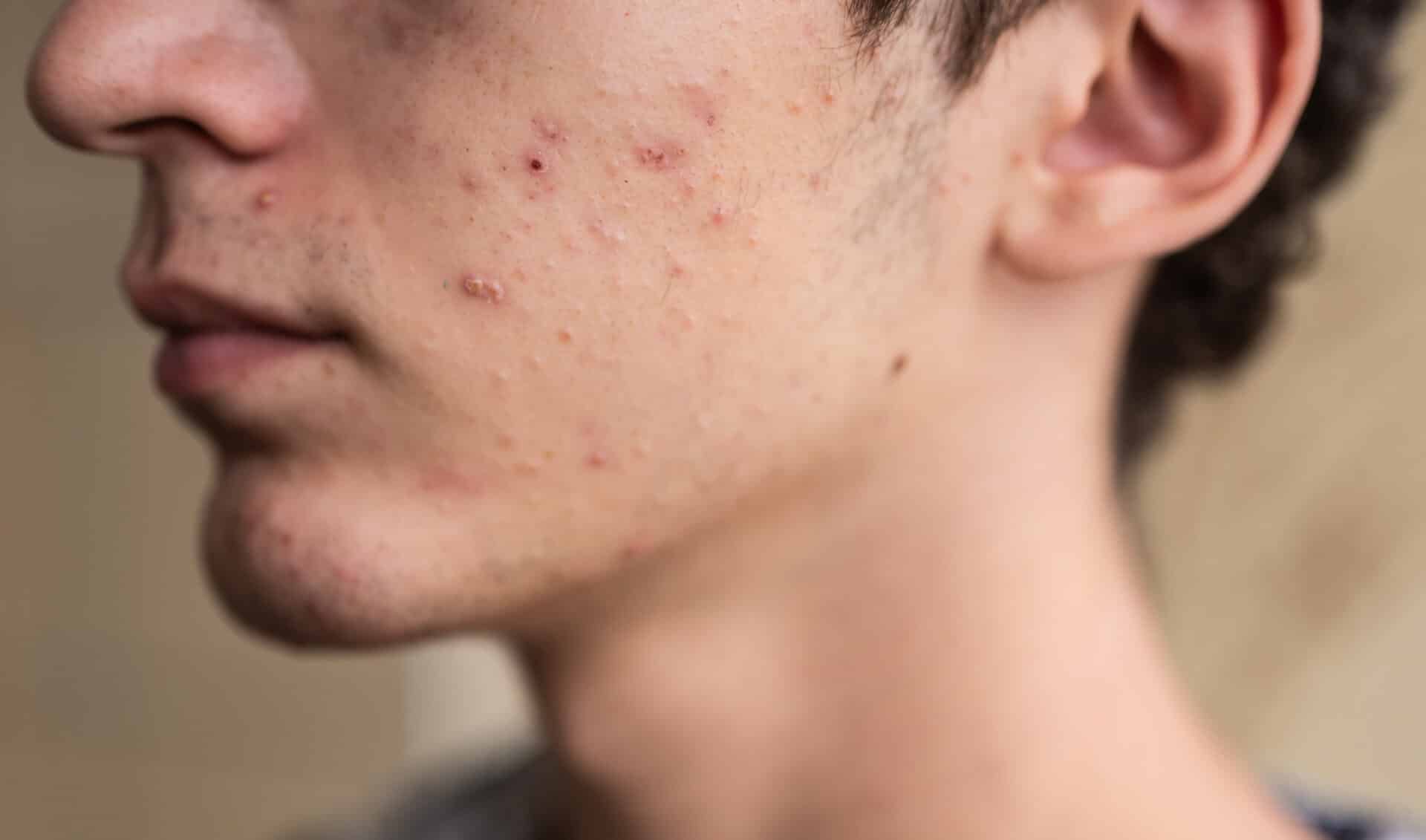There’s a common assumption that alcohol causes skin problems such as acne or psoriasis, but that isn’t necessarily true. While there are some negative effects that drinking alcohol can have on the skin, many of the skin problems from alcohol occur indirectly due to a person drinking too much alcohol or drinking alcohol too frequently.
It’s like the saying goes, too much of anything is a bad thing. It’s a cycle. Drinking excessively often leads to alcohol dependency and alcohol addiction. An alcohol rehab in Idaho is necessary, as substance abuse treatment programs can help break the dangerous cycle and help someone become sober.
At Eagle Creek Ranch Recovery, our drug rehab provides comprehensive addiction treatment services including dual diagnosis treatment, and evidence-based therapies for people struggling with alcohol addiction.
Indirect Skin Problems from Alcohol

At any given point in a human’s life, anywhere from around 55% to around 75% of the human body is made out of water. This is because water and hydration are essential for the human body to function healthily.
There are numerous reasons why water and hydration are essential for the human body to function healthily. One of these reasons is that water helps to flush out toxins in the body.
Having fewer toxins in the body creates a healthier body. Fewer toxins in the body also mean fewer toxins in the skin. This, in turn, means better skin. Hydrating one’s skin by drinking water also helps flush out dead skin cells. Less dead skin cells mean fresher, healthier, and younger-looking skin.
Hydration is such an important part of skin health that if a person doesn’t hydrate his or her skin adequately by drinking water, the human skin will overcompensate by producing excess oil. Unfortunately, such excess oil on the skin often causes skin glands to get clogged. Clogged skin pores and glands then lead to the development of acne.
Therefore, one huge thing that a person can do to help foster healthy skin is to hydrate by drinking tons of water and not allowing oneself to ever become dehydrated. Unfortunately, though, there are certain drinks that can help dehydrate people rather than hydrate them. One dehydrating drink is alcohol. As a result, drinking too much alcohol often leads to skin problems such as acne.
Drinking too much alcohol can also indirectly cause skin inflammation. This is, once again, because frequently drinking a dehydrating drink such as alcohol can cause the body to not be able to flush out enough dead skin cells. Excess dead skin cells can then lead to clogged follicles, which then can cause redness and swelling of the skin.
Because alcoholic beverages contain large amounts of sugar in them and sugar triggers inflammation, drinking alcohol can lead to excess sugar in the body, which then also indirectly causes skin inflammation along with other skin issues.
Consuming large quantities of alcohol destroys protective cells in the human body. This, in turn, causes the body’s immune system to weaken.
The weaker a person’s immune system is, the more likely that person will experience skin problems. This is because the immune system helps fight the development of bacteria in the skin that causes acne.
For example, a good immune system helps fight off the bacteria Propionibacterium acnes. Propionibacterium acnes is a bacterium that causes cysts and pustules breakouts on the skin. This means that a weakened immune system due to excess alcohol drinking causes the body to not be able to fight off Propionibacterium acnes. This, in turn, causes a person who drinks large amounts of alcohol to suffer from more acne cysts and breakouts than normal.
Drinking too much alcohol can even cause a person’s hormonal system to become imbalanced. This is because consuming alcohol can affect a person’s testosterone and estrogen levels, which directly affect a person’s skin.
In men, drinking small quantities of alcohol increases testosterone levels, and drinking large quantities of alcohol lowers testosterone levels. In women drinking alcohol increases estrogen levels.
Because sharp increases in testosterone trigger the oil glands on a person’s skin, individuals who consume alcohol often cause excess oil to develop on their skin, which then causes their acne to spark up.
The liver in the human body is responsible for flushing out toxins. Unfortunately, consuming too much alcohol can cause liver damage. This means that drinking too much alcohol causes the human body to not be able to properly rid itself of toxins, including the ones on the skin. In other words, drinking too much alcohol leads to liver damage, which later leads to toxin buildup and, indirectly, skin problems.
Direct Skin Problems from Alcohol
While alcohol as a whole often indirectly causes skin problems, there are some forms of alcohol that can directly cause skin problems. For example, alcohol in the form of clear liquors such as gin or vodka directly causes skin inflammation.
Dark liquors, on the other hand, directly cause dehydration, inflammation of the body and skin, and increased sugar levels. Even red wine dilates blood vessels and increases the chance of skin inflammation. White wine and beer also cause skin inflammation, along with dehydration of the skin.
Mixed alcoholic beverages tend to contain large amounts of sugar in them. As a result, drinking mixed drinks can lead to increased blood sugar levels, skin inflammation, and dehydration. Drinking mixed alcoholic drinks also causes the body and skin to experience whatever effects the liquor in the mixed drinks has on the body and skin.
Alcoholism and Psoriasis
Psoriasis is a chronic inflammatory disease that causes a person’s immune system to attack the healthy cells in his or her body. Because consuming large quantities of alcohol can weaken a person’s immune system and cause a person to experience inflammation, some people think that there’s a correlation between psoriasis and alcoholism.
How Much Alcohol is Too Much Alcohol?
Everyone responds to alcohol differently. This is partly because the amount of alcohol that it takes to cause a person to become intoxicated and experience negative bodily effects differs depending on the weight, height, age, and gender of the person. For example, a woman who is short and thin can only consume so much alcohol before it starts to affect her mind and body in negative ways.
Women, in general, tend to not be able to handle drinking as many alcoholic beverages as their male counterparts. As a result, according to the American Academy of Dermatology (AAD), men who consume more than two drinks a day may experience the negative effects of drinking alcohol, as opposed to women who may experience them if they drink more than one alcoholic beverage per day.
According to the National Institute on Alcohol Abuse and Alcoholism (NIAAA), a person can define binge drinking as a pattern of drinking alcohol that causes a person’s blood alcohol concentration (BAC) to rise to 0.08% or 0.08 grams or more of alcohol per deciliter. This corresponds to around five or more drinks in two hours for males and four or more drinks in two hours for women.
According to the NIAAA, heavy alcohol use for men is drinking four or more drinks on any given day, or more than 14 drinks per week. For women, heavy alcohol use is drinking three or more drinks on any given day or more than seven drinks per week. The Substance Abuse and Mental Health Services Administration (SAMHSA) defines heavy alcohol use as binge drinking on five or more days in the past month.
What Happens to Your Skin When You Stop Drinking Alcohol?
While socially drinking or having an alcoholic beverage at the end of a long day may be rewarding, many health benefits come with not drinking at all. This is especially true for a person’s skin health.
Just one week of no longer drinking can lead to visible improvements to one’s skin. This is because within one week’s time, hydration is restored and much of the skin’s damage can go away.
After one month of no longer drinking, the natural toning of the skin will improve. Within one month of no longer drinking, people also usually lose weight.
After one year of no longer drinking, the health and appearance of people’s skin and livers are likely restored. In fact, at this point, a person’s skin may be glowing.
Repair Skin Problems from Alcohol with Chapters Recovery Center
Eagle Creek Ranch Recovery is a rehab facility that’s based in Nampa, Idaho. Through the use of the 12-step recovery method, we help our clients achieve long-term sobriety. Contact us today to start your journey to recovery.

Clinical Director
Kendall Maloof is the clinical director at Eagle Creek Ranch Recovery. She is a licensed marriage and family therapist and has held multiple leadership roles before settling here at Eagle Creek. Kendall received her master’s degree in marriage and family therapy from the Chicago School of Professional Psychology in 2016. Her career in mental and behavioral health began in 2014 when she took up internships in both the nonprofit and for profit sectors. She interned at multiple reputable companies, such as The Living Success Center and 449 Recovery in California.
In 2019, Kendall became the clinical director of Sunsets Recovery for Woman, a dual diagnosis program in southern California. Kendall is a natural leader. She has an incredible ability to problem solve and stay calm in any situation. Kendall never fails to show up when she is needed, and her calm demeanor makes her team and clients feel at ease. Eagle Creek Ranch Recovery is proud to have Kendall as our clinical director.



